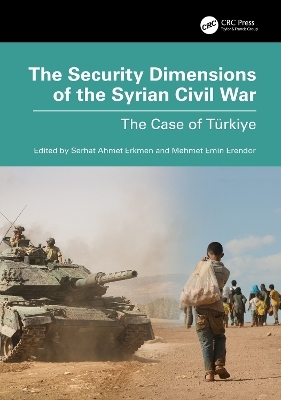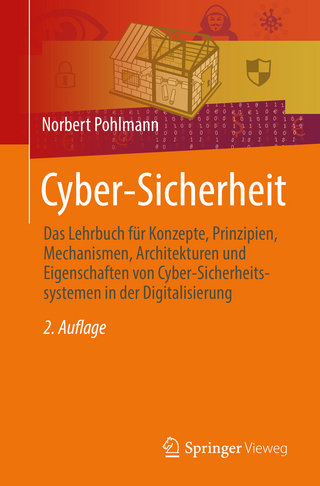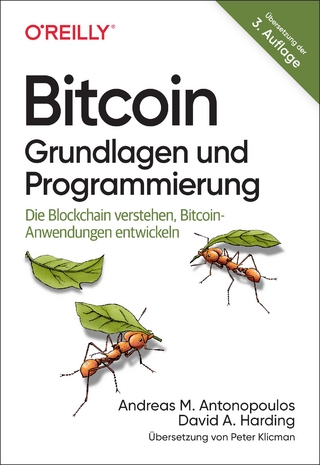
The Security Dimensions of the Syrian Civil War
CRC Press (Verlag)
978-1-032-60923-2 (ISBN)
- Lieferbar (Termin unbekannt)
- Versandkostenfrei innerhalb Deutschlands
- Auch auf Rechnung
- Verfügbarkeit in der Filiale vor Ort prüfen
- Artikel merken
When one thinks of Türkiye and Syria together in recent years, two concepts come to mind most often: Military operations and migration. However, conflicts in Syria have been perceived in a broader security paradigm in Türkiye.
The main topics of the book can be summarized as follows:
Border issues, sovereignty disputes, alliances, and military interventions in Türkiye–Syria relations.
The effects of the civil war in Syria on Türkiye's foreign policy, economy, social structure, and internal security.
Reflections of the civil war on Türkiye's relations with Iran, the US, and Russia.
Increasing separatist and radical Salafist terrorism in Türkiye in line with the spillover effect of civil wars.
Cross-border operations and Türkiye's military capacity.
The problem of migration.
Within the framework of the topics addressed, the book provides a comprehensive reading of the security problems caused by the Syrian Civil War on Türkiye. We believe that this book will shed light on why Türkiye perceives what is happening in Syria from a security perspective. In fact, the main idea of the book is simple: Syria has been a security issue for Türkiye since the 1930s, and it is still a security issue now. After approximately 100 years, the main idea has not changed. The only thing that has changed is how security is defined.
Serhat Ahmet Erkmen was born in Istanbul in 1975. He completed his undergraduate studies at Ankara University, Faculty of Political Sciences, Department of International Relations. He obtained his PhD from the same university in 2008. Between 2000 and 2017, he worked as a researcher and senior advisor in various think tanks, focusing particularly on the Middle East, with an emphasis on Iraq and Syria. From 2000 to 2008, he was associated with the Eurasian Strategic Studies Center, from 2009 to 2014 with ORSAM, and from 2014 to 2017, with the 21st Century Turkey Institute. These roles allowed him to delve deeply into the complexities of the region, conducting research and providing strategic insights on various issues, particularly those pertaining to Iraq and Syria. From 2009 to 2017, he served as a faculty member in the Department of International Relations at Ahi Evran University in Kırşehir. Later, from 2018 to 2021, he worked at the Security Sciences Institute, Department of International Security and Terrorism at the Gendarmerie and Coast Guard Academy. After serving as the head of the Department of International Relations at Altınbaş University from 2022 to 2023, he left the university. While working at universities and think tanks, he conducted research and managed projects on security, terrorism, and migration issues. He also provided training and seminars on terrorism, intelligence analysis, Middle East issues, and foreign policy at numerous institutions. In 2024, Dr. Erkmen founded the analysis company Pros&Cons Security and Risk Assessment, of which he is currently the president. Serhat Erkmen's main areas of expertise are security, terrorism, and intelligence analysis. In addition to these main themes, he has been conducting fieldwork on the political situation, social structure, and security issues in Iraq and Syria for nearly 20 years. The dozens of reports, articles, and analyses resulting from these studies have been published in Turkish, English, and Arabic. In recent years, Serhat Erkmen has focused on border security, cross-border military operations, and terrorist organizations such as ISIS/PKK. He frequently visits Iraq and Syria and prepares analyses based on the research he conducts in these regions. Mehmet Emin Erendor received his bachelor’s degree in International Relations from Kırıkkale University in 2008. He completed his master's degree in International Law: Rights and Responsibilities from the University of Sussex, Brighton in 2011 and a PhD in International Relations from the University of Southampton in 2017. He worked as a Research Assistant Dr. at Çukurova University between 2017–2018. Since 2018, he has been working as an associate professor in the Department of International Relations at Adana Alparslan Türkeş Science and Technology University. His research interests include cyber security, terrorism, the Turkic world, Turkish Foreign Policy, and international organizations.
Preface
About the Editors
List of Contributors
Section 1: Security Aspects in Türkiye’s Foreign Policy
Chapter 1 Why Security Matters in Türkiye’s Approach to Syrian Civil War
Serhat Ahmet Erkmen
Chapter 2 Security Aspects in Türkiye’s Foreign Policy
Zeynep Arkan Tuncel and Ali Nihat Attila
Chapter 3 Security Dilemma on Turkish-Syrian Relations: Historical Background and Current Dynamics
Özlem Tür
Chapter 4 Intervention as a Security Tool in Turkish Foreign Policy
Haydar Karaman
Chapter 5 Security Gap and Paradigm Shift in the Türkiye’s Transforming Syria Policy
Cenk Özatıcı
Chapter 6 Russian-Turkish Security Cooperation in Syria: Geopolitical and Security Reasons
Tuba Taşlıcalı Koç
Chapter 7 Syria Issue: As A Source of Competition in Turkish-Iranian Relations
Tuğba Özden Bayar and Murat Bayar
Section 2: Spillover Effects
Chapter 8 Spillover Effects of the Civil Wars: The Case of Syria
Mehmet Turan Çağlar
Chapter 9 Spread of Ethnosectarian Conflict from Syria to Turkey: Case of 2015-2016
Merve Önenli Güven
Chapter 10 Importing Radical Jihadists Terrorism: Al Qaeda and ISIS activities inside Turkey
Haldun Yalçınkaya
Section 3: Issues in Practicing Security
Chapter 11 “Can Turkey Protect Its Borders?”: Border Security and Threats from Syria
Başar Baysal and Çağla Lüleci Sula
Chapter 12 Türkiye’s Military Operations as Countering Terrorism Policy
Mehmet Emin Erendor
Chapter 13 Securitization of Migration: Syrians in Türkiye’s Political Discourse Case
Nihal Eminoğlu
Chapter 14 Transboundary Water Issue: Source of Conflict or Cooperation
Seyfi Kılıç
Chapter 15 Effects of Syrian Civil War on Türkiye’s Defense Industry
Hasan Yükselen
Chapter 16 Cross-border Operations in Syria in the Context of International Law: Türkiye’s Perspective
Burak Güneş
| Erscheinungsdatum | 03.12.2024 |
|---|---|
| Reihe/Serie | Security, Audit and Leadership Series |
| Zusatzinfo | 4 Tables, black and white; 3 Line drawings, black and white; 3 Illustrations, black and white |
| Verlagsort | London |
| Sprache | englisch |
| Maße | 178 x 254 mm |
| Gewicht | 600 g |
| Themenwelt | Informatik ► Netzwerke ► Sicherheit / Firewall |
| Mathematik / Informatik ► Informatik ► Theorie / Studium | |
| Recht / Steuern ► Privatrecht / Bürgerliches Recht ► IT-Recht | |
| Sozialwissenschaften ► Politik / Verwaltung ► Europäische / Internationale Politik | |
| ISBN-10 | 1-032-60923-0 / 1032609230 |
| ISBN-13 | 978-1-032-60923-2 / 9781032609232 |
| Zustand | Neuware |
| Informationen gemäß Produktsicherheitsverordnung (GPSR) | |
| Haben Sie eine Frage zum Produkt? |
aus dem Bereich


